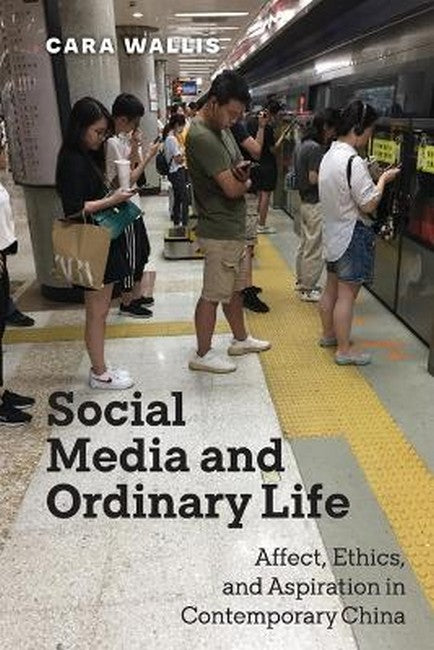How Chinese citizens use social media Focusing on domestic workers, rural microentrepreneurs, disadvantaged young creatives, and young feminists, Social Media and Ordinary Life is a deeply moving ethnography of how digital media infrastructures and platforms are woven into the rhythms of ordinary, everyday life. In choosing to foreground marginalized groups and communities, Cara Wallis gently shifts our attention away from the world of "social media influencers" and tech-centric discourses of entrepreneurial lives towards a decidedly ambivalent terrain of routine life practices. Social Media and Ordinary Life argues that understanding these individual experiences of the everyday enables greater insight into larger transformations taking place in contemporary China. Through long-term ethnographic fieldwork across China, Wallis foregrounds the entanglement of affect, emotion, ordinary ethical decisions, and desires connected to social media as it is used for self-expression, self-representation, fights for equality, maintenance of community, and economic livelihood. Four case studies show how social media is integrated into the articulation of affects by a wide variety of "ordinary" Chinese subjects: disadvantaged young creatives who migrate to Beijing from rural areas and use social media to cultivate their personal aesthetics; micro-entrepreneurs in rural Shandong province, especially women whose affective ties to the patriarchal family constrain their use of technology for economic enhancement; domestic workers, all women, in urban homes who use social media to build community and construct themselves as ethical subjects; and young feminists spread across China who engage in various types of cultural production and deploy social media in their fight for gender equality, often facing social and/or political marginalization in the process. Amid daunting forces-big data, artificial intelligence, massive surveillance-this book centers the "small," showing how structural inequality, the urban/rural divide, patriarchal gender norms, and generational differences lead to contradictory or ambivalent outcomes of technology use. Wallis argues that understanding these individual experiences enables greater insight into larger transformations taking place in contemporary China.

